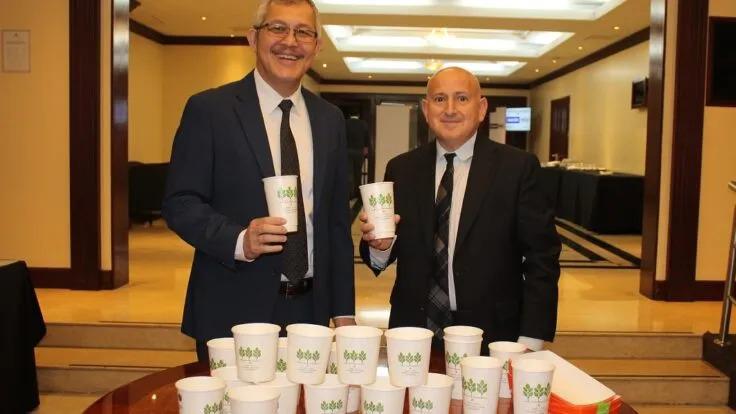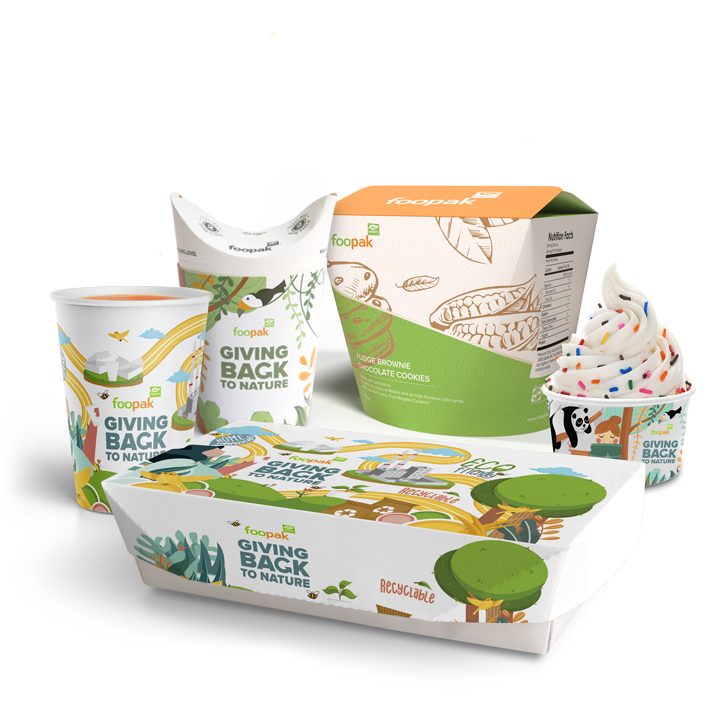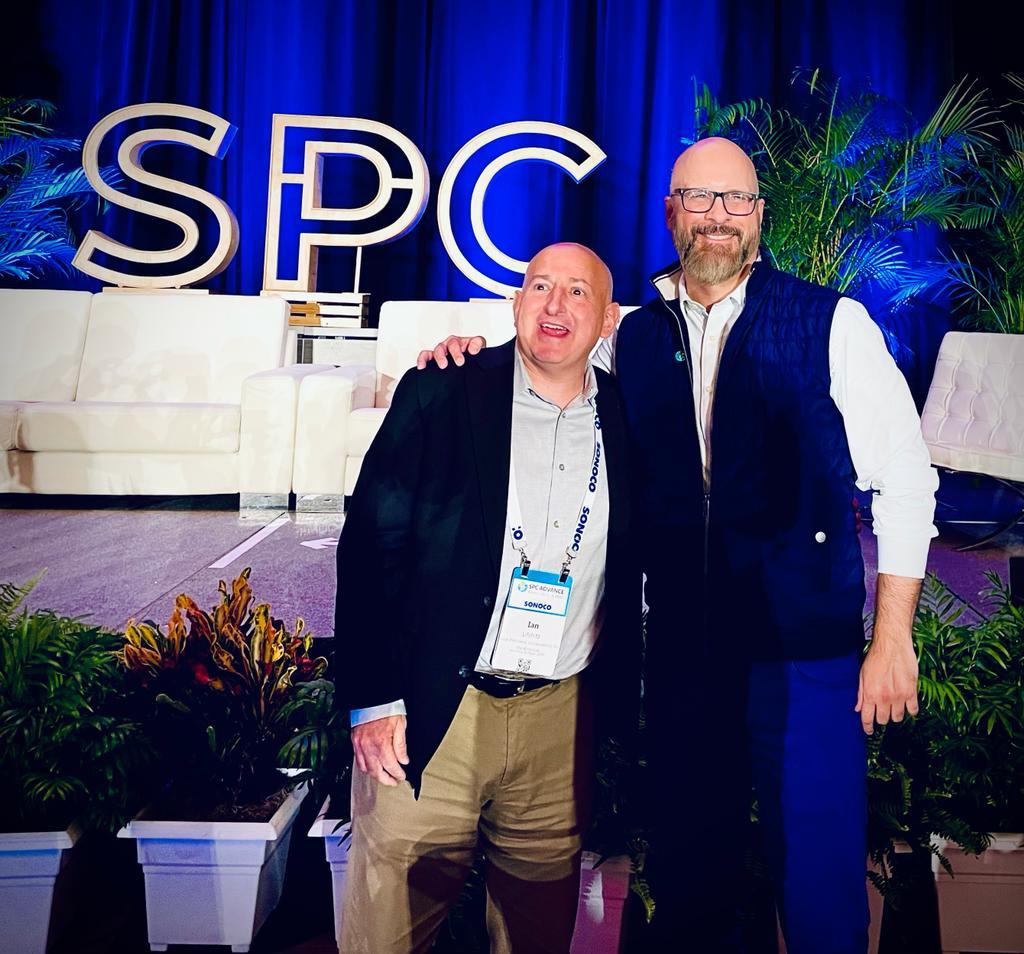The right person to tell you about market trends for paper and sustainable packaging in the Americas is Ian Lifshitz, the Vice President of Sustainability & Stakeholder Relations at Asia Pulp & Paper (APP) Sinar Mas who is based in Canada.
Ian started with APP in 2010 as Manager of Stakeholder Relations for the US and his role was subsequently expanded to cover Canada as well as Latin & South America.
Understandably, so much has changed in the 13 years that he has been with the company. “When I joined APP, sustainability was not even a buzzword, and climate change as a term and a threat was just in its infancy. People were referring to the latter as global warming.”
Not surprisingly, things have evolved and there are now greater demands placed on products and producers to procure and produce in a sustainable way, not just towards the environment but also in terms of being responsible towards people & society.

Not soon after he joined APP, the company launched its Forest Conservation Policy (FCP) which Ian credits as a pivotal moment in the company’s steadfast commitment to place sustainability at the core of its business.
Beyond just targeting zero deforestation, it represented a bold commitment to protect forest, tighten supply chain traceability, and invest in the people & communities in and around APP’s operations to uplift their lives with efforts to enhance their livelihoods by empowering them and facilitating their switch to alternative jobs.
“When I talk to customers and meet people at conferences & exhibitions all across both North and South America, it’s clear that the work we are doing and the progress we have made is keeping us on track to achieving our corporate business & sustainability targets.”
“If we are getting it right at the company level, then I believe we are in a strong position to support and contribute to the larger efforts to protect the world’s forests, better the lives of the people and answering the call by governments, customers, and consumers for the private sector to step up in support of the Sustainable Development Goals and the climate mitigation & adaptation efforts needed to protect our planet.”

Throughout his time with APP, Ian has also seen the company evolve from a commodity seller to a true solutions provider.
Ian believes the company has been forward-looking in innovating and developing sustainable solutions like with its Foopak Bio Natura brand of food packaging solutions that is plastic-free, recyclable, and compostable. Because of its versatility, the material can be used to pack liquids and hot food, and is microwavable and can be used in the oven when baking.
This is a real game-changer as regulations seek to clamp down on plastic use and customers & consumers demand sustainable alternatives to plastics and are showing it with their wallets. For brands, these solutions will help them meet the global shift towards sustainable packaging and respond to the demands of sustainable-minded consumers, and meet their own sustainability targets and commitments.
In markets across the Americas, Ian is seeing change since he first joined in 2010, and he puts it down to three main drivers – (1) greater awareness of and demand for sustainable products by consumers, (2) retailers changing procurement policies by placing sustainability at its core in response to market demands, and (3) governments implementing legislation including bans and taxes on the use of single-use plastics.
These have had a ripple effect across the supply chain for food packaging for example. Major food service brands are moving away from plastics to alternatives such as recyclable fiber, and consumers are using their purchasing power more readily to force these brands to change, selecting brands with sustainable commitments, and even willing to pay more for sustainable choices.
Governments in the Americas in particular, from Canada up north and the US, to Mexico and all the way down to Peru, are implementing plastic-free legislation, forcing retailers and consumer brands to re-think their supply chain and packaging choices.
Because the Americas is a vast continent and home to large consumer markets, there are of course marked differences in each market.
In Canada, there is a single vision of sustainable development, meaning for the most part the country implements similar sustainable legislation provincial or nation-wide.
In the US, regulations are applied and adopted state-by-state or even by city or towns. So we see states like California and New York take a progressive view of things like implementing state-wide recycling and composting legislation, while in other states there are still emerging debates on how to best manage packaging waste.
Given this awareness on sustainability among consumers in arguably its two largest urban consumer markets (California and New York), APP is seeing strong demand for Foopak and other sustainable packaging options, as well as paper board products.
Ian is most surprised but encouraged by the progress and level of awareness among customers in Mexico and Peru. Both markets are emerging marketplaces, enjoying fast growth supported by a core emerging middle class, with better income at their disposal creating a craving for eating out, a ‘restaurant experience’ at home with take outs, and generally spending more on food and retail.
This helps create opportunities for APP with its products to support and help these markets respond fast to the rising demands.
Like the US, Ian is seeing APP products such as Foopak, packaging materials, and paper board & copy paper gaining traction in Latin & South America. The rise of the middle class and steady economic growth has seen this part of the world quietly but increasingly driving the sustainability agenda which is evident from the good turnout at major sustainable packaging events such as Expo Pack Mexico and Pack Peru.
Looking ahead and as the world recovers from the pandemic, Ian is optimistic that the paper and packaging industry will not only overcome the dip in business caused by movement restrictions and supply shortages brought about by supply chain disruptions, but surge ahead to better pre-Covid levels.
As people return to work and school, and live goes back to normal, he expects demand to grow and suggest exciting times are ahead for the business.

Even as digitalization takes hold of the Americas, the demand for paper should not be discounted. APP has successfully adapted to market needs and trends, and thanks to its Foopak Bio Natura range, is able to respond to the growing sustainable packaging business.
Growth of food delivery services like Uber Eats, or meal kit companies like Hello Fresh, are causing a higher need for packaging, thus driving a surge in demand. This driven in part by millennials and younger consumers who are more environmentally-aware but who also regularly use these services.
And it is this group who are also demanding sustainable options for packaging – making it the right time for a sustainable and responsible businesses like APP and innovative products like Foopak to gain a foothold in the huge consumer continent that is the Americas.
